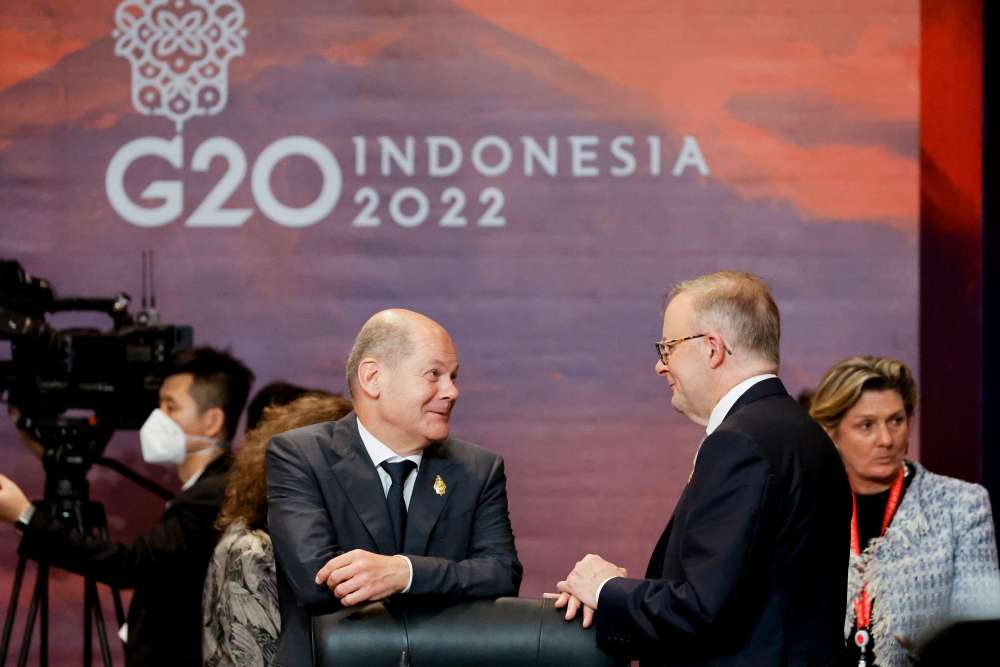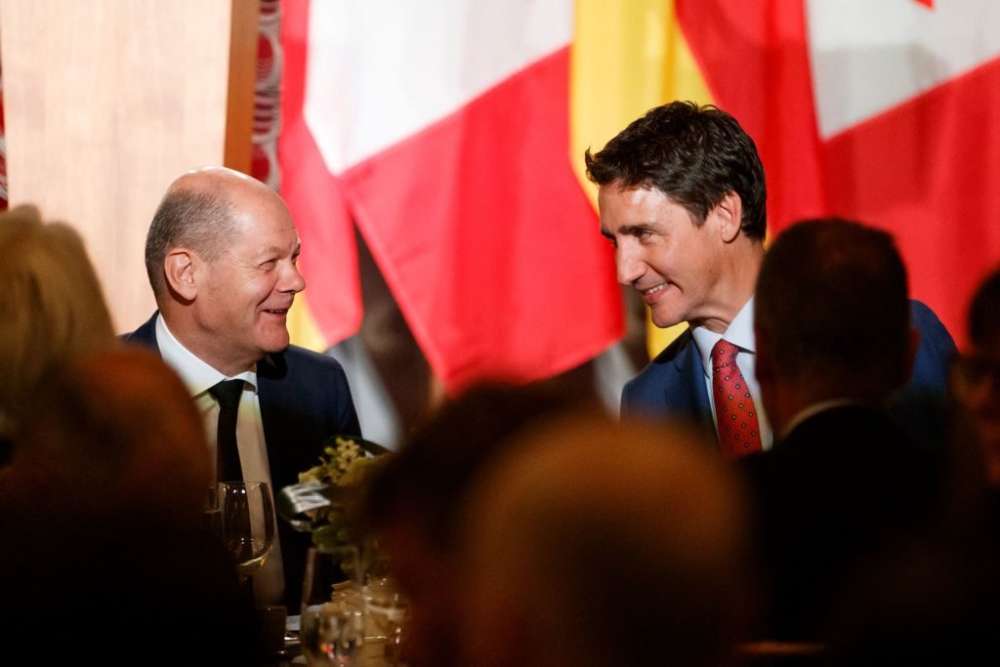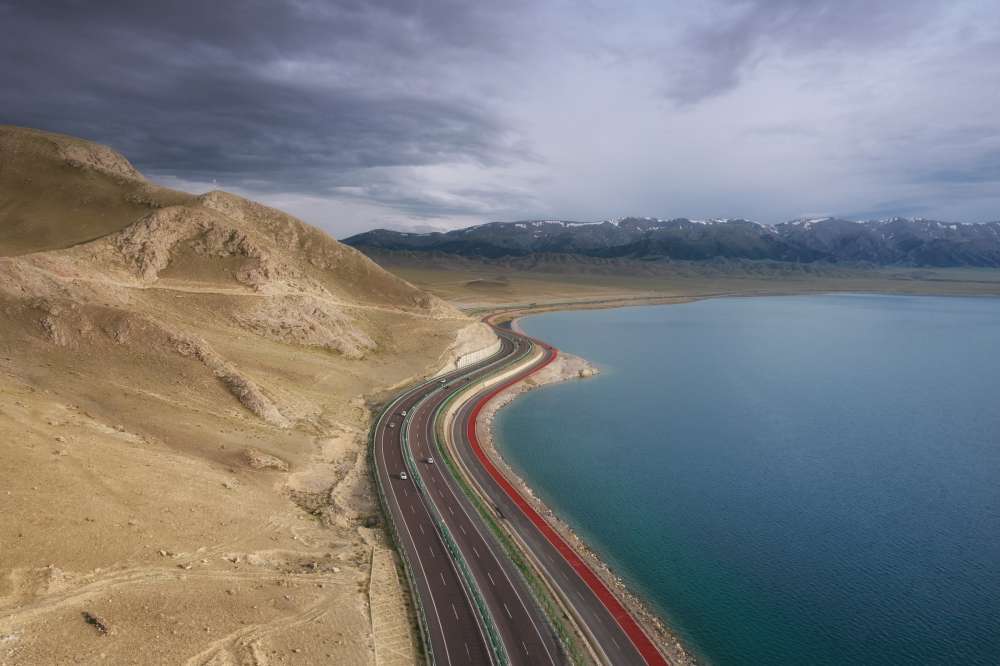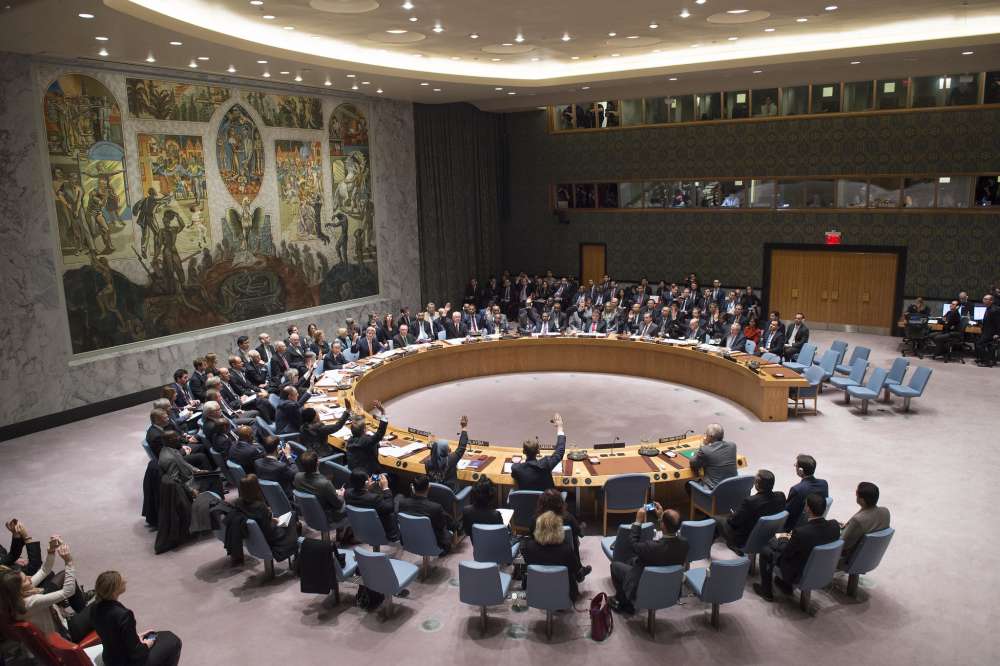“Balancing Act”: Germany’s Role in the UN Security Council Reform
A year after the start of Russia’s war on Ukraine, the UN Security Council is more divided than ever. But even so, the body has also shown an intriguing degree of resilience in the last year. What went right and where are reforms needed? And what part does Germany have to play?
As the United Nations Director at the International Crisis Group, you closely observe developments within the UN. In 2018, you wrote that “the UN Security Council is in an unholy mess.” Ukrainian President Volodymyr Zelensky recently expressed his frustration with the body’s inability to restrain Russian aggression. Which reforms are needed to address the Council’s structural issues?
I want to start on a mildly positive note. While the UN Security Council is clearly even more divided than it was five years ago, the body has also shown an intriguing degree of resilience in the last year. Of course, that does not mean everything has been rosy. Relations between the five permanent members (the ‘P5’ – China, France, Russia, the United Kingdom, and the United States) are absolutely toxic as a result of Russia’s war on Ukraine. The war has also dominated the Council’s agenda: there have been over 50 Council meetings on Ukraine since January 2022, which is vastly more than on any other crisis.
Still, I have been struck by the fact that, despite outrage over the war on Ukraine, the Council has managed to keep working in parallel – and sometimes even innovate – on other situations such as in Afghanistan and Haiti. Interestingly, Russia has only used its veto twice on issues other than Ukraine in the last year. From the looks of it, Moscow wants to keep the Council open as a space where it can keep up a minimum level of cooperation with the West. China has also worked quite hard behind the scenes to persuade Moscow not to crash the Security Council altogether.
These points are worth emphasizing, as the Council’s core function is ultimately to act as a channel for major power compromises and de-confliction – a fact that we have lost sight of a little in the 30 years since the end of the Cold War. We have tended to think of the Council as platform for advancing liberal norms and human rights. Even before Russia’s all-out assault on Ukraine, it was clear that the Council could not live up to these high expectations, as much as we might have wanted it to do so. I wrote a piece in 2021 about “learning to live with a limited Security Council,” arguing that we have to accept that the UN body faces huge restraints in an era of major power competition. But even so, the Council still has value as a space where major powers can muddle along and make deals on those issues where they still have mutual interests.
“The Council’s core function is ultimately to act as a channel for major power compromises and de-confliction – a fact that we have lost sight of a little in the 30 years since the end of the Cold War.”
Turning to the question of reform, we should distinguish between aspirational and realistic reform proposals. At the moment, there is a lot of talk about structural reforms to the Council in light of Russia’s most recent aggression. US President Joe Biden created a bit of diplomatic excitement last September when he said that Washington would lead these reform discussions. But realistically, the chances of finding a reform package that satisfies all of the current permanent members of the Council (who have to ratify any changes to the UN Charter) are low. China in particular is very suspicious that the US wants to find a way to secure permanent seats for Japan and India, which would be a red line for Beijing. Plus, would the US Congress ratify an amended UN Charter, which would be required for any Council reform? The prospect is dubious at best. So, while can talk about reform for the Security Council, we have to be honest that it is unlikely to happen. A similar debate took place after the Iraq War 20 years ago, but came to naught.
In this context, there are still modest steps that member states can take to keep the Council more-or-less functional. The most important is to put pressure on the P5 to refrain from using their veto power as much as possible. There is already some movement on this front: As we know, even Russia has limited its use of the veto on issues other than Ukraine. And China really dislikes the reputational damage of blocking resolutions. The wider UN membership has been trying to raise the diplomatic costs associated with the veto. Liechtenstein engineered a clever initiative in the General Assembly last year calling on the permanent members to explain their vetoes formally to the entire Assembly. Such openness creates a mild – but useful – deterrent against the P5 casting their vetoes frivolously. Personally, I would like to see UN members keep up the political pressure on P5 on this issue.
I am also encouraged by the fact that the 10 elected members of the Council (the ‘E10’) have reacted to the breakdown of P5 relations over Ukraine by coordinating their own diplomacy better than before. For example, the E10 made a big effort last year to persuade Russia to agree to renew the Security Council’s mandate for UN agencies to deliver humanitarian aid to rebel-held northwestern Syria. Obviously, each elected member of the Council bring with them their own interests and differences, but they do share the common goal of keeping the Council functional.
Finally, there is clearly some impetus for the Council to find ways to offer greater support to the African Union. To be blunt, states are very keen to win the goodwill of African members of the UN because they play an important role in votes in the General Assembly and other forums concerning Ukraine. However, this practical reality also creates some political space to establish new mechanisms for the UN to fund African Union-led peace operations, which is an idea that Crisis Group endorses.
Key Points:
- While it is unlikely that the UN Security Council will undergo major reform, member states should take steps to keep the body functional – including discouraging vetoes, improving diplomacy between elected members and working more with the African Union.
- Germany should use its position in the Council to build trust with non-Western countries and to convince others of the mutual benefits of multilateralism.
- To succeed, Germany must show that it cares about the Sustainable Development Goals and that other big aid donors are committed to their development targets as well.
Before its delegation joined the UN Security Council, you expressed the hope that Germany could help broker deals between the United States, United Kingdom and France on the one side and Russia and China on the other. How do you assess Germany’s role within the UN now after one year of “Zeitenwende”? What can Germany do to strengthen multilateralism?
Looking back on Germany’s term in the Security Council from 2019 to 2020, I actually think Berlin’s main role was to stand up for multilateralism in the face of pressure from the Trump administration, which it did pretty well. Certainly, there was not much space for crafting deals between then-US President Trump and China!
However, Norway and Ireland did manage to act as mediators between Russia and the rest of the P5 on a number of issues – such as the situation in Syria and Bosnia and Herzegovina – in the Council last year, and they handled that role successfully.
Coming to the present, Germany finds itself in the middle of a lot of UN reform discussions not only as aspirant to a permanent Security Council seat, but also as one of the two member states guiding the major “Summit for the Future” in 2024. UN Secretary-General António Guterres wants to use this Summit to get leaders talking about a wide range of multilateral reforms, covering everything from peace and security issues to changes for international financial institutions. However, at the moment, a lot of non-Western countries are suspicious of the Summit and argue that the UN should focus more on achieving the Sustainable Development Goals (SDGs) and alleviating global poverty. This debate has resulted in high level of tension within the UN, with developing countries accusing the West of attempting to downgrade the SDGs. Going forward, this could derail the entire reform agenda.
If Germany and its allies cannot get non-Western countries on board, you are likely to see relations between Western and non-Western nations sour at the UN.
Given Germany’s facilitating role in the Summit of the Future as well as its status as one of the largest global aid donors, Berlin’s main job now is to help persuade non-Western countries that their suspicions are ill-founded, and that UN members have shared interests in improving the way multilateralism works. This is a balancing act. To succeed, Germany needs make a convincing case that it cares about the SDGs – and that other big aid donors remain committed to their development targets as well.
If Germany and its allies cannot get non-Western countries on board, it will not just mean failure for the Summit for the Future – you are likely to see relations between Western and non-Western nations sour at the UN more generally. There is a danger that the organization could head back toward the confrontational North-South politics of the 1970s, making multilateral diplomacy far harder than it is now.
Richard Gowan
UN Director, International Crisis Group
Keep on reading

Embrace Multipolarity: Germany Must Act European for the Global Common Good
To promote a more peaceful world, Germany needs to move past primarily national strategies and start thinking European. The best way to do that: support a strong global role for the European Union.

Canada and Germany: Partners in Defending a Shared Approach to International Security
With militarized nationalism and anti-internationalist sentiments on the rise again, Canada and Germany should work together to forge a more effective and inclusive multilateral system – one built on democratic solidarity.

Structural Power: A Global Infrastructure Policy Should be Part of a Positive Vision for the International Order
Countries in the Global South are suffering from massive infrastructure investment gaps. Germany should spur the EU’s sluggish infrastructure policy as part of a wider effort to promote a positive vision for the international order.
